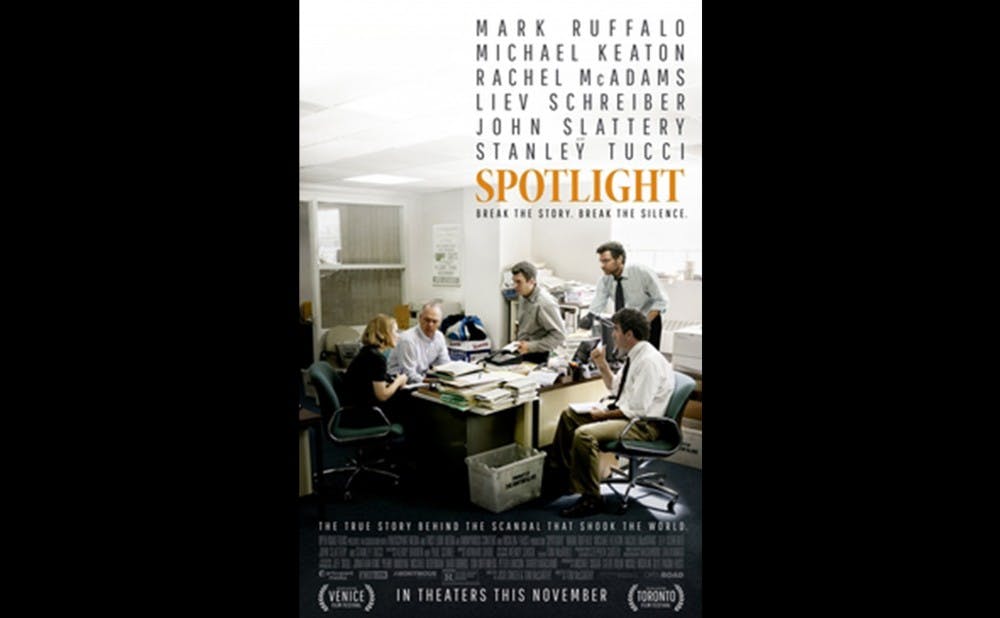“Spotlight” has been heralded as the new “All the President’s Men,” a movie dramatizing the journalism industry at a time when journalism is not always afforded the kindest sentiments. It has a 98 percent rating on Rotten Tomatoes, so audiences clearly have positive things to say about it. And it seems like every day, my Twitter feed reveals another article about “Spotlight.” I am here to add to the chaos.
From the movie’s opening scenes, “Spotlight” makes it clear that it is an understated film. The neutral gray, blue and white palette of The Boston Globe’s offices, filmed in an abandoned warehouse remodeled to look like the newsroom, is true to life. However, the real artistry lies in how the investigation slowly unfurls itself. Instead of a shocking twist, “Spotlight” takes you along with the reporters of the Spotlight team, The Boston Globe’s investigative reporting corps. Although they seem to know there is more to the story from the get-go, they have to get all the facts before they can discover the whole truth.
What “Spotlight” becomes is a portrait of a newsroom in transition. The arrival of a new editor, Martin Baron, formerly of The Miami Herald and now at The Washington Post, throws the newsroom into panic—will there be more cuts? How will he change the paper’s coverage? Tackle the Catholic Church? But Baron’s soft-spoken, determined manner, expertly portrayed by Liev Schreiber, allows the more aggressive reporters and editors to excel under his control.
The scenes in “Spotlight” outside of the newsroom are where the movie really shines. The movie’s most tense scenes are often between reporters and the people they cover. Toward the end of the film, Spotlight editor Walter “Robby” Robinson, played by Michael Keaton, urges his friend to confirm sensitive information. His childhood friend is torn, and in that moment, the audience sees the difficulty in being a journalist entrenched in a community: how do you treat your friends when they are also your sources?
This is the tension of “Spotlight.” As much as this movie is about Boston, it is also about The Boston Globe and journalism. Journalism is a craft that is significantly changing in the digital age, and yet hoping to stay true to the same overarching ideal: to ferret out the truth.
The main reason I was excited to see the film was so my family and friends would finally get what I did each day as a reporter. Admittedly, I am often not chasing down the Catholic Church, but the vibe is similar. But when my parents walked out of the theater, they didn’t say “Wow, now we get it” or “Gee, how exciting.” (I’m not sure why these were the token responses I had in my head, but go figure.) Instead we all sat in the car in silence for a while, until my brother finally said, “So not light holiday fare, huh?” My parents both nodded, “That was intense.”
I was stunned. The movie had been entertaining to me. It was fast-paced and fascinating to watch it all play out, but intense had not come to mind. Yet Catholic priests high up in the order were found to be molesting children. Was that not the definition of intense? So I had to ask myself, was I completely desensitized to tragedy in my role as a reporter? And if so, what did that mean for the Spotlight team and for audiences everywhere?
Get The Chronicle straight to your inbox
Signup for our weekly newsletter. Cancel at any time.

